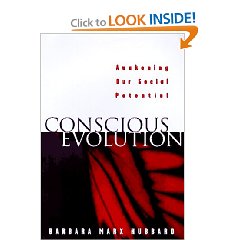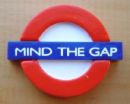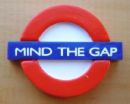George B.N. Ayittey
I saved this book for last (I read in threes and fours to rapidly sense competing and complementary perspectives). The other three:
The Challenge for Africa
The Trouble with Africa: Why Foreign Aid Isn't Working
Dead Aid: Why Aid Is Not Working and How There Is a Better Way for Africa
This book (Africa Unchained) is really two books in one, and as I conclude this summative review, will suggest to the author a third book needed now to complete the trilogy.
BOOK ONE: Chapters 2-7 focus on the problems of the past and are less interesting to me than the author's clear rejection of all tendencies to blame the past, the West, the banks, or anyone other than Africans themselves, for the failure to develop. These chapters merit careful reading if one is to be fully engaged in Africa, but here I sum them up as “four strikes and out” in the author's own words:
Strike One: State control model never worked
Strike Two: Rush to modernize industry while neglecting agriculture (where 65% of African live and die in largely subsistence mode)
Strike Three: Aped (sic) alien systems and ignored–demeaned indigenous political and economic systems that had worked for centuries
Strike Four: All the above required massive external investments and dependencies
BOOK TWO is the Chapter 1 and Chapters 8-11. It opens with a dedication by name and circumstance to investigative journalists and publishers who were killed for seeking and sharing the truth. The recurring theme within this book as well as the other three I experienced this week is that Africa's biggest problem is ignorance among the 80% that are dirt poor, and Africa's potential “great leap forward” could be fueled by inexpensive locally-oriented Information Operations (IO), my term for a diversity of examples the author puts forward in the last chapter.
While published in 2005, I sense this book remains a best in class effort. Three short quotes from the Prologue:
“They [the cheetah generation] understand and stress transparency, accountability, human rights, and good governance.”
“They have vowed to work tirelessly to expose the crimes committed by African despots and to block the grant of political asylum to any such despot.”
“They teach petty traders, hawkers, small artisans, market women, and those in the informal and traditional sectors about simple accounting techniques, how to secure microfinance, how to secure a job, and how to improve the productivity of their businesses, among other things, so as to make these self-employed artisans self-sufficient.”
Other “IO” elements about this book that truly inspired me:
+ South African music legend Bonginkosi Thuthukani Dlamini and his isi-camtho kwaito “wicked cool talk” could be used by South Africa to carry the message of bottom-up self-sufficiency and hope across the continent.
+ The intellectual in Africa have betrayed the public as much as the corrupt despots, they have become “intellectual prostitutes” to those in power.
+ Indigenous knowledge, including centuries of self-governance and participatory democracy as well as valued medicine men and women combined with majimbo–a Swahili word for local initiative and trust in traditional wisdom, is still there.
+ West does not understand Africa and has been “feckless and impotent” across all fronts (government aid, corporate exploitation). I take this to mean that there is a need for Africans to educate the West and the varied parties seeking to engage Africa for whatever reason, at the same time that all Africans must be educated to understand that the aid is being stolen at the top and should be refused.
The over-all thrust of BOOK TWO is that only Africans can save Africa, and more specifically, only the poorest of Africans–the 65% engaged in subsistence farming–can save Africa by creating agricultural productivity and self-sufficiency.
The author observes the insanity of receiving $18.6 billion a year in aid while paying the same amount to import food to a continent that is rich in resources, is NOT over-populated, and is also enjoying the emergence of women with common sense as key players in community leadership.
Chapter 8 outlines why the state system fails even if corruption is eliminated; Chapter 9 is for me very important, a discussion of the indigenous economic system (more aptly, localized political-economic-social-cultural system). Chapters 10 and 11 are the heart of BOOK TWO and full of specifics.
On page 327 “how Africa loses money” lists $148B to corruption, $20B to capital flight, $15B to military, $15B to civil war damages, $18B to food imports, and $216B to all other leakages.
The author concludes that Africa has all it needs to invest in itself, less the vanquishing of the corrupt leaders across the region, a “challenge” the author never addresses, other than stating his view that the African Union (AU) is hopeless. I'm not so sure, between Brotherly Leader Al-Gathafi and President Zuma in ZA, there are some possibilities.
Among the author's recommendations:
+ Leverage the 3rd industrial revolution (communications and information technologies).
+ Move away from high-end aid projects and instead focus on bottom-up assistance at a level of a goat that gives milk, a foot-pump to move water, a donkey for transport, micro-credits, and so on. From page 392 there are numerous ideas, all relevant.
+ Return to the African model of peace making, a four-party model in which the two belligerents are not brought together by the UN so they can agree to a “joint plunder” deal, but rather use trained facilitators and add the civil society–the victims and residents being plundered–to the mix for a longer-term settlement achieved by holistic consensus.
The author focuses on the village development model (Cf. p 369) and discusses how “African solutions are less expensive, and further, reform that is internally generated endures.” (Cf. 417).
The bibliography is extraordinary, a lifetime of reflections by others that the author has integrated.
BOOK THREE is needed, perhaps with Wangari Maathai, actually providing both a handbook that is short and easily translated into AUDIO TAPES in all languages and dialects, and an online “Regional Range of Needs Table.”
Other books I recommend:
Breaking the Real Axis of Evil: How to Oust the World's Last Dictators by 2025
Deliver Us from Evil: Peacekeepers, Warlords and a World of Endless Conflict
Faith- Based Diplomacy Trumping Realpolitik
A More Secure World: Our Shared Responsibility–Report of the Secretary-General's High-level Panel on Threats, Challenges and Change
The Tao of Democracy: Using Co-Intelligence to Create a World That Works for All
Society's Breakthrough!: Releasing Essential Wisdom and Virtue in All the People
All Rise: Somebodies, Nobodies, and the Politics of Dignity (BK Currents (Hardcover))










